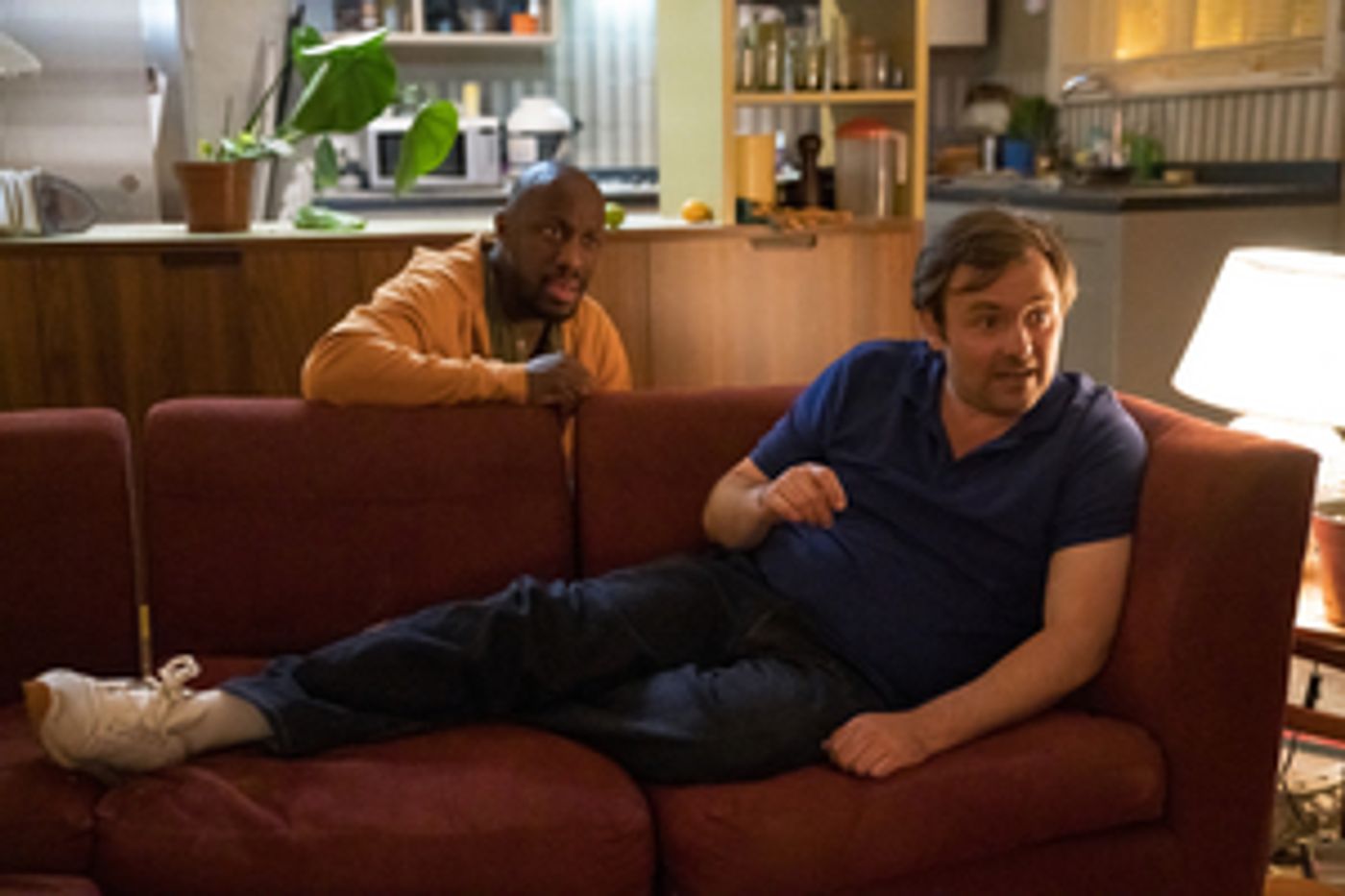Review: DEATH OF ENGLAND: FACE TO FACE, Sky Arts
Clint Dyer and Roy Williams team up for a third, hybrid chapter of Death of England

![]() The team behind Death of England and its spin-off-slash-standalone-sequel Death of England: Delroy have been busy since their last involvement with the material, Delroy, which closed dramatically on press night last year due to further lockdown measures. Now, Clint Dyer and Roy Williams's newest collaboration is landing on screen instead as a hybrid film that deals with the permanent scars left by that the events in the first instalments.
The team behind Death of England and its spin-off-slash-standalone-sequel Death of England: Delroy have been busy since their last involvement with the material, Delroy, which closed dramatically on press night last year due to further lockdown measures. Now, Clint Dyer and Roy Williams's newest collaboration is landing on screen instead as a hybrid film that deals with the permanent scars left by that the events in the first instalments.
Death of England: Face to Face is a peculiar project. Rooted in many theatrical conventions, it's unmistakably cinematic in its presentation. Crips, engaging editing by Anna Dick marries the duo's established razor-sharp politics and enraged humour. It's the height of lockdown and Delroy is in his East London flat when Michael shows up at his door with his newborn niece - Delroy's daughter.
Constrained by the four walls, the two come to terms with their friendship and their place in the world while the past - and Michael's father (Phil Daniels) looms large above them. Neil Maskell and Giles Terrera play childhood friends with unbounded chemistry as they give their personal accounts. While the piece works better if one is familiar with the earlier chapters, Face to Face is thematically crystalline.
It spans subjects like anger, racism, and the dynamics of an interracial couple - also tackled in the previous plays - placing them under the magnifying lens of the pandemic. Delroy feels stifled by lockdown and thinks he is losing it. Isolation and the depression caused by it make him act irrationally and recklessly, but the notion of having a new baby seems to put everything in perspective.
Michael declares that Covid has changed him massively, so he's striving to be a better human being. His attempt at this comes in the form of apologising to Delroy for his racist father and standing up for him against his complaining neighbour. His friend, however, has a different idea and accuses him of liking the concept of being a hero, briefly blaming him for an assumed white saviour complex.
They jump from argument to argument, discussing all the hot topics of the past year or so as if they were ticking them off a list, to the point where it can feel quite unnatural. Their exchanges are, however, as impeccable as their reasoning. Dyer and Williams write with indisputable eloquence, but this isn't anything new. While the other two plays were monologues, here their main characters finally meet and have a peaceful confrontation.
The spectator is a referee of sorts at the start, with both of them directly addressing us like a third party in their meeting. As they talk their issues out and find common ground in the desire for a better world for the baby, the need for an arbiter shifts and develops into a request for someone to hold them accountable.
While the repercussions of what happened in the past are ever-present, it eventually transpires that they're both willing to move on and band together. Michael has a newfound willingness to listen to Delroy, his personal struggles as a black man, and his position in a post-Brexit England. His friend, on the other hand, is coming to terms with a new life and all the concerns that come with being a new parent.
He shocks Michael when he admits he is glad he didn't have a boy and his daughter is fair-skinned, because he never wanted a potential son to have to grow up in the same racist environment as him. "Make me understand" he begs Delroy, accusing England of messing him up for good. It's a fresh beginning for two characters who grew up in a damaged society and who bear the scars of their upbringing.
Once again, Dyer and Williams team up to have us take a good look at what's around us. Their political commentary is consistently momentous, and Face to Face only reiterates the importance of their contributions.
Death of England: Face to Face airs on 25 November on Sky Arts.
Photo credit: Steffan Hill
Reader Reviews
Videos

